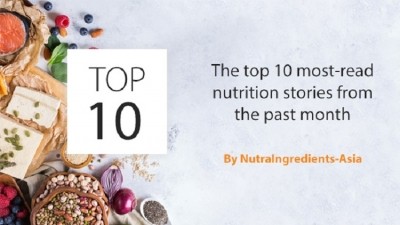Regulatory round-up: UAE’s nutrition strategy, South Korea’s plans to ban ‘CBD’ wording on hemp seed oil product and more

Nutritional navigation: UAE eyes ‘virtual elimination’ of trans fats and sets ambitious salt reduction targets
The United Arab Emirates (UAE) government has announced implementation guidelines for its National Nutrition Strategy 2022 – 2030, eyeing the ‘virtual elimination’ of trans fats in the local food supply as well as a 30 per cent reduction in consumers’ average salt intake.
The strategy, announced in late 2022, has broader public health targets including the reduction of stunting and overweight in children under five years of age, reducing anaemia in women by 50 per cent, as well as halting the rise in obesity in children and both obesity and diabetes in adults.
Some of the planned approaches include targeting trans fat elimination and food reformulation, said the authorities.
Advertising impact: South Korea intends to ban terms ‘CBD’ and ‘THC’ on hemp seed oil
South Korea’s food and drug regulator is planning to ban the use of the terms ‘CBD’ and ‘THC’ on hemp food products, including hemp seed oil supplements.
The terms ‘CBD’ and ‘THC’ stand for cannabidiol and tetrahydrocannabinol respectively. Both may be found in trace amounts – CBD at 20mg/kg or less and THC at 10mg/kg or less in hemp seed oil.
The Ministry of Food and Drug Safety (MFDS) said it wanted to ban the use of these two terms to stem the problem of deceptive product advertising and would be consolidating public feedback until February 27.
Sports foods impact: Limit total caffeine to a maximum of 200mg per day – Australia / NZ regulator
The Food Standards Australia New Zealand (FSANZ) has proposed new regulations to limit caffeine consumption through sports foods.
It has proposed to permit total caffeine in Formulated Supplementary Sports Foods (FSSF) up to a maximum of 200mg in a one -day quantity. New product labelling will be needed to display such information.
The proposal is opened for public feedback until February 13, 6pm Canberra time.
Caution statements: South Korea to impose warnings on co-enzyme Q10, squalene, inulin products
South Korea will impose caution statements on Health Functional Foods (HFFs) containing co-enzyme Q10, squalene, inulin / chicory extract, and six other functional raw materials.
The six other raw materials affected are conjugated linoleic acid (CLA), N-acetylglucosamine (NAG), oat fiber, chitosan / chito-oligosaccharide, xylo- oligosaccharide, and L-carnitine tartrate.
Products containing any of the above materials would need to warn either pregnant, lactating women, and / or children to refrain from consuming them, as well as to stop intake and consult a specialist in case of adverse reactions.
2023 outlook: The must know nutraceutical regulations on the horizon in APAC this year
Here we consolidate the new nutra regulations that will kick in this year in various parts of Asia-Pacific, from the use of aloe vera in food across Taiwan to Hong Kong’s Amendment Regulation regarding harmful substances in food.
Elsewhere in Malaysia, the country is implementing Quantitative by Input (QBI) when determining the amount of active ingredients in supplements from January 1.
Similarly, from the start of January, food product shelf life in South Korea has adopted the “use-by” date system.











